In the past week, we have witnessed devastation being wreaked upon our fellow Europeans in Ukraine.
For most of us, what we are witnessing is incomprehensible. Ireland shares a particular kinship with Ukraine and the Ukrainian people as our countries are steeped in farming tradition.
Our thoughts are with all the Ukrainian people at this awful time as they fight for their democratic rights and freedom.
At a very basic level, the responsibility of a government is to protect and provide for its citizens. The war between Ukraine and Russia has exposed the extent to which the policy direction within the EU over recent decades has been misguided on both fronts.
For weeks now, the EU has relied on US intelligence to keep abreast of Russia’s advances on Ukraine. Investing in its own military capacity and defence systems has not been seen as a priority in recent decades.
An article in The Economist magazine – titled Europe is the free-rider continent – draws attention to the fact that, for decades, EU defence has been underpinned by the US, which each year invests 3.5% of GDP in its armed forces.
In contrast, Europeans in NATO invest only 1.7% of GDP with Germany and Italy investing 1.5% and 1.4% respectively, and Spain just 1%.
Meanwhile, amid emergency discussions between EU leaders on Russian sanctions, Polish prime minister Mateusz Morawiecki pointed out the uncomfortable truth: the EU had helped fuel Putin’s war through its failed energy policy.

Many farms in Ukraine still rely on Belarus tractors for input application like spraying and spreading.
In 2020, over 60% of the EU’s total energy demand was met through imports, of which Russia accounted for 40%, valued at over €60bn. This in part has helped push Russia’s annual current account surpluses to record highs.
Energy and defence
This dawning of reality among EU leaders has led to what has been described as a watershed moment in EU politics – particularly in Germany. It is just over a decade since the then German chancellor Angela Merkel and then Russian president Dmitry Medvedev heralded the commissioning of Nord Stream 1 – a gas pipeline directly linking Germany with Russia’s Siberian gas fields, as a “new partnership” between Germany and Russia. Last week, German Chancellor Olaf Scholz announced plans to send anti-tank weapons to Ukraine in a bid to help it defend itself against a Russian invasion. The following day, the German chancellor announced a special €100bn fund to upgrade its armed forces and a commitment to increase spending within NATO to 2% of GDP. Alongside this, he also signalled a U-turn in energy policy, with a commitment to reduce the dependency of Europe’s largest economy on Russian gas.
The three-party German coalition government, including the Greens, committed to building two liquefied natural gas (LNG) terminals and hinted that extending the life span of coal and nuclear power stations may also be required to rebuild energy security.
In contrast, as Stephen Robb reports in this week's edition, the Green Party in Ireland continues to advance attempts to introduce legislation preventing the construction of such LNG terminals in Ireland.
The Greens rightly see the war in Ukraine as exposing the need for Europe to ramp up renewable energy production, recognising the importance of energy security. It is unfortunate that their approach towards agriculture policy is to undermine active food producers at the expense of EU food security.
Food systems are vulnerable
On 1 January of this year, the Irish Farmers Journal ran an editorial titled Failures in EU energy policy being repeated in food policy. It would have been incomprehensible to think that, just eight weeks later, these failures would be so exposed and such a dramatic shift in EU energy and defence polices would be triggered almost overnight.
Now is the time for EU leaders and policymakers to also recognise food security as a key pillar in protecting and providing for EU citizens.
As in energy, the direction of EU food policy over the past two decades has been to undermine food security, with the EU Farm to Fork strategy being the latest manifestation of a policy framework that will increase EU reliance on food imports – as identified by the USDA, the EU Joint Research Centre and Wageningen University.
Events of the last week should now force an immediate rethink on Europe’s food strategy in the same way as they have for energy and defence.
As we report in this week's agribusiness coverage, the availability and price of nitrogen, coupled with severe disruption to the normal flow of grains within key regions, have the potential to severely destabilise world food markets both in terms of the price and availability.
The EU will not be immune, albeit that senior European Commission officials have moved this week to play down fears of food shortages – describing the EU’s agri-food system as “hugely resilient and powerful”. But this ignores the extent to which this powerhouse is fuelled by Russian fertiliser and Ukrainian grains for animal feed.
While US secretary of agriculture Tom Vilsack recently dismissed the impact of a global fertiliser shortage on US food prices, he warned that if he was an agriculture secretary in a European country, he would not have the same view.
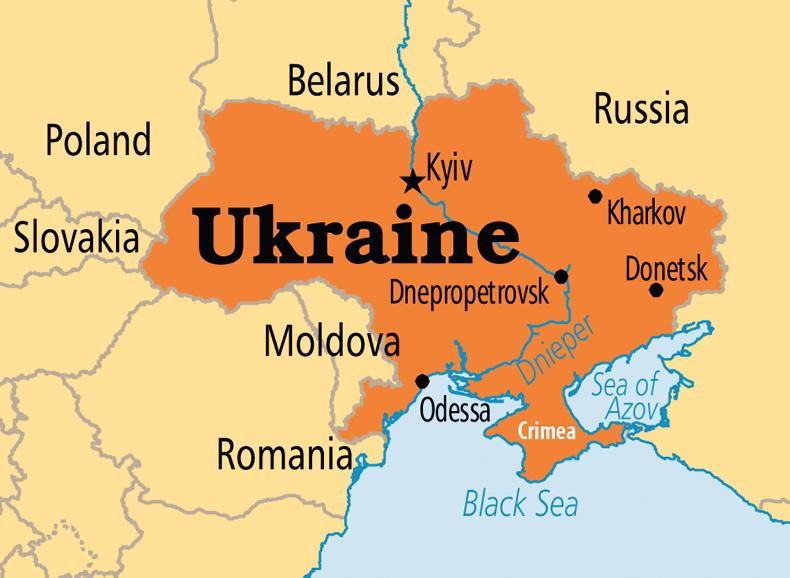
Russian forces have been moving in to Ukraine from the north, east and south.
Time to rethink
Ultimately, to hand control of the EU energy market over to Russia was also to hand over control of both the price and availability of food within the EU.
Those that control the price of EU energy also control the price and availability of chemical nitrogen to EU farmers and therefore the price and availability of food for consumers.
An acknowledgement of the need to move quickly to rebuild defence and energy security within the EU must extend to recognising the need to refocus agriculture policy on protecting food security.
Given the uncertainty in global markets, this should start by supporting EU farmers to offset spiralling costs to safeguard production in the months ahead.
At a national level, the €40m underspend/clawback within the BEAM scheme should immediately be rolled back into the low-income sector to ensure that adequate fertiliser is secured to maximise forage grown on farms.
The implications of a forage shortage next winter, at a time when availability of concentrates could potentially be limited, would be disastrous. Now is the time for the Government to put in place a plan to prevent such a scenario.
Bubble has burst
If there is a long, protracted war, in which China becomes more centrally and economically involved, the impact on global food supplies could be severe and prolonged.
Rapid food price inflation – at a level similar to what we have seen in energy markets – alongside major disruption to food supplies, cannot be ruled out.
Stockpiling of food by wealthy exporting countries would create further disruption and increase the threat to vulnerable countries.
The cosy bubble in which many in Brussels have operated for the entirety of their political/policy careers has been burst. A food shortage within the EU or globally for many is unthinkable but so, too, was a war within Europe.
The unthinkable has now happened and the EU must prepare for what could be a very different and difficult food market – both globally and domestically. The first step should be to quickly support EU farmers to optimise food production – both for the benefit of the community and for the vulnerable regions of the world that rely heavily on Ukrainian imports as their food source.
The EU’s most fundamental advances have been in response to crises. We are at such a time now.
In the past week, we have witnessed devastation being wreaked upon our fellow Europeans in Ukraine.
For most of us, what we are witnessing is incomprehensible. Ireland shares a particular kinship with Ukraine and the Ukrainian people as our countries are steeped in farming tradition.
Our thoughts are with all the Ukrainian people at this awful time as they fight for their democratic rights and freedom.
At a very basic level, the responsibility of a government is to protect and provide for its citizens. The war between Ukraine and Russia has exposed the extent to which the policy direction within the EU over recent decades has been misguided on both fronts.
For weeks now, the EU has relied on US intelligence to keep abreast of Russia’s advances on Ukraine. Investing in its own military capacity and defence systems has not been seen as a priority in recent decades.
An article in The Economist magazine – titled Europe is the free-rider continent – draws attention to the fact that, for decades, EU defence has been underpinned by the US, which each year invests 3.5% of GDP in its armed forces.
In contrast, Europeans in NATO invest only 1.7% of GDP with Germany and Italy investing 1.5% and 1.4% respectively, and Spain just 1%.
Meanwhile, amid emergency discussions between EU leaders on Russian sanctions, Polish prime minister Mateusz Morawiecki pointed out the uncomfortable truth: the EU had helped fuel Putin’s war through its failed energy policy.

Many farms in Ukraine still rely on Belarus tractors for input application like spraying and spreading.
In 2020, over 60% of the EU’s total energy demand was met through imports, of which Russia accounted for 40%, valued at over €60bn. This in part has helped push Russia’s annual current account surpluses to record highs.
Energy and defence
This dawning of reality among EU leaders has led to what has been described as a watershed moment in EU politics – particularly in Germany. It is just over a decade since the then German chancellor Angela Merkel and then Russian president Dmitry Medvedev heralded the commissioning of Nord Stream 1 – a gas pipeline directly linking Germany with Russia’s Siberian gas fields, as a “new partnership” between Germany and Russia. Last week, German Chancellor Olaf Scholz announced plans to send anti-tank weapons to Ukraine in a bid to help it defend itself against a Russian invasion. The following day, the German chancellor announced a special €100bn fund to upgrade its armed forces and a commitment to increase spending within NATO to 2% of GDP. Alongside this, he also signalled a U-turn in energy policy, with a commitment to reduce the dependency of Europe’s largest economy on Russian gas.
The three-party German coalition government, including the Greens, committed to building two liquefied natural gas (LNG) terminals and hinted that extending the life span of coal and nuclear power stations may also be required to rebuild energy security.
In contrast, as Stephen Robb reports in this week's edition, the Green Party in Ireland continues to advance attempts to introduce legislation preventing the construction of such LNG terminals in Ireland.
The Greens rightly see the war in Ukraine as exposing the need for Europe to ramp up renewable energy production, recognising the importance of energy security. It is unfortunate that their approach towards agriculture policy is to undermine active food producers at the expense of EU food security.
Food systems are vulnerable
On 1 January of this year, the Irish Farmers Journal ran an editorial titled Failures in EU energy policy being repeated in food policy. It would have been incomprehensible to think that, just eight weeks later, these failures would be so exposed and such a dramatic shift in EU energy and defence polices would be triggered almost overnight.
Now is the time for EU leaders and policymakers to also recognise food security as a key pillar in protecting and providing for EU citizens.
As in energy, the direction of EU food policy over the past two decades has been to undermine food security, with the EU Farm to Fork strategy being the latest manifestation of a policy framework that will increase EU reliance on food imports – as identified by the USDA, the EU Joint Research Centre and Wageningen University.
Events of the last week should now force an immediate rethink on Europe’s food strategy in the same way as they have for energy and defence.
As we report in this week's agribusiness coverage, the availability and price of nitrogen, coupled with severe disruption to the normal flow of grains within key regions, have the potential to severely destabilise world food markets both in terms of the price and availability.
The EU will not be immune, albeit that senior European Commission officials have moved this week to play down fears of food shortages – describing the EU’s agri-food system as “hugely resilient and powerful”. But this ignores the extent to which this powerhouse is fuelled by Russian fertiliser and Ukrainian grains for animal feed.
While US secretary of agriculture Tom Vilsack recently dismissed the impact of a global fertiliser shortage on US food prices, he warned that if he was an agriculture secretary in a European country, he would not have the same view.

Russian forces have been moving in to Ukraine from the north, east and south.
Time to rethink
Ultimately, to hand control of the EU energy market over to Russia was also to hand over control of both the price and availability of food within the EU.
Those that control the price of EU energy also control the price and availability of chemical nitrogen to EU farmers and therefore the price and availability of food for consumers.
An acknowledgement of the need to move quickly to rebuild defence and energy security within the EU must extend to recognising the need to refocus agriculture policy on protecting food security.
Given the uncertainty in global markets, this should start by supporting EU farmers to offset spiralling costs to safeguard production in the months ahead.
At a national level, the €40m underspend/clawback within the BEAM scheme should immediately be rolled back into the low-income sector to ensure that adequate fertiliser is secured to maximise forage grown on farms.
The implications of a forage shortage next winter, at a time when availability of concentrates could potentially be limited, would be disastrous. Now is the time for the Government to put in place a plan to prevent such a scenario.
Bubble has burst
If there is a long, protracted war, in which China becomes more centrally and economically involved, the impact on global food supplies could be severe and prolonged.
Rapid food price inflation – at a level similar to what we have seen in energy markets – alongside major disruption to food supplies, cannot be ruled out.
Stockpiling of food by wealthy exporting countries would create further disruption and increase the threat to vulnerable countries.
The cosy bubble in which many in Brussels have operated for the entirety of their political/policy careers has been burst. A food shortage within the EU or globally for many is unthinkable but so, too, was a war within Europe.
The unthinkable has now happened and the EU must prepare for what could be a very different and difficult food market – both globally and domestically. The first step should be to quickly support EU farmers to optimise food production – both for the benefit of the community and for the vulnerable regions of the world that rely heavily on Ukrainian imports as their food source.
The EU’s most fundamental advances have been in response to crises. We are at such a time now.






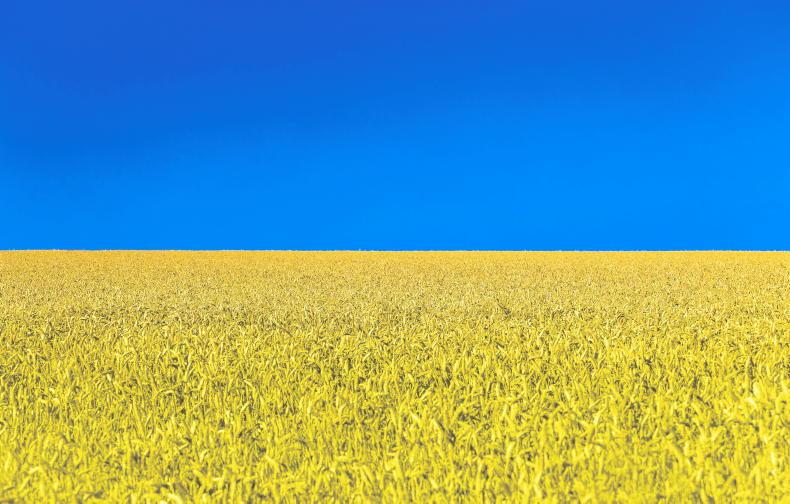
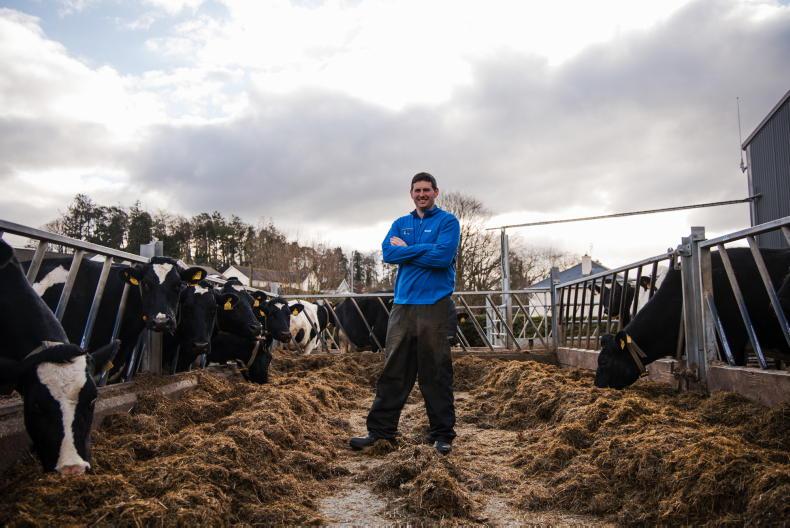

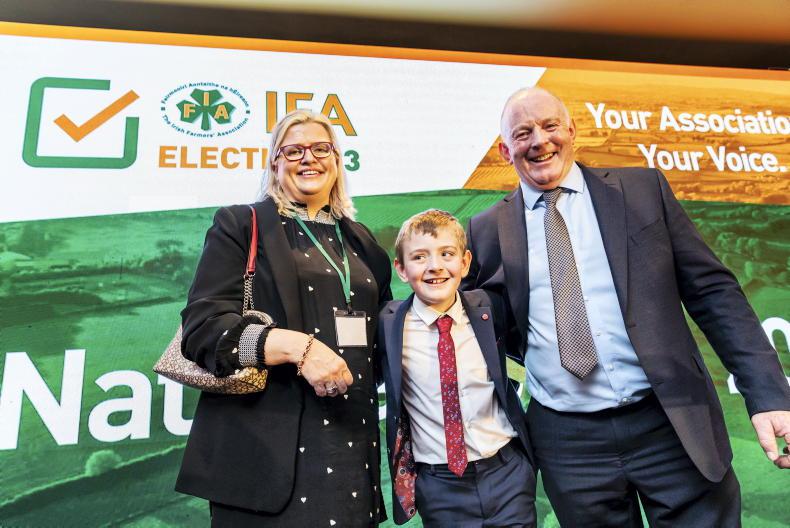
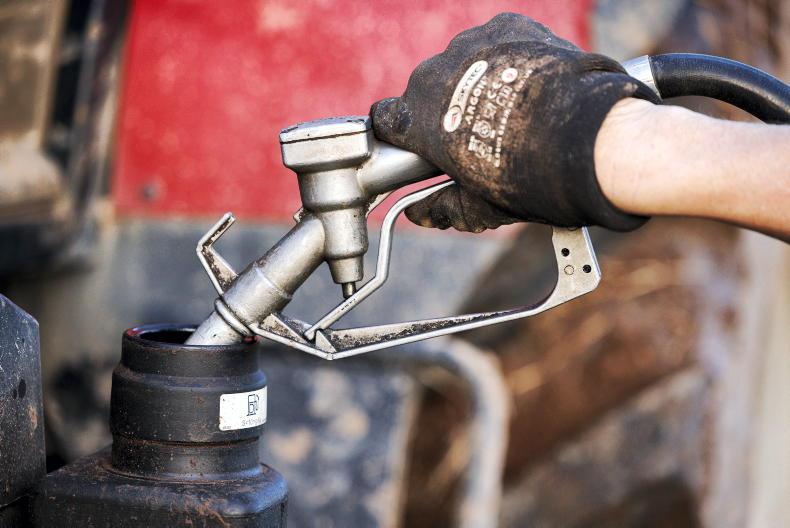
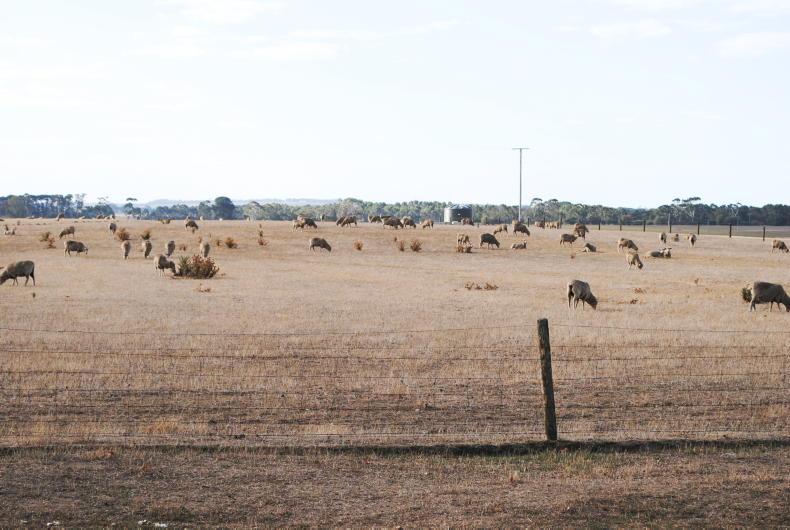
SHARING OPTIONS